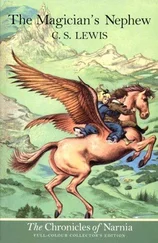Clive Lewis - That Hideous Strength
Здесь есть возможность читать онлайн «Clive Lewis - That Hideous Strength» — ознакомительный отрывок электронной книги совершенно бесплатно, а после прочтения отрывка купить полную версию. В некоторых случаях можно слушать аудио, скачать через торрент в формате fb2 и присутствует краткое содержание. Жанр: Религиоведение, Фэнтези, на английском языке. Описание произведения, (предисловие) а так же отзывы посетителей доступны на портале библиотеки ЛибКат.
- Название:That Hideous Strength
- Автор:
- Жанр:
- Год:неизвестен
- ISBN:нет данных
- Рейтинг книги:5 / 5. Голосов: 1
-
Избранное:Добавить в избранное
- Отзывы:
-
Ваша оценка:
- 100
- 1
- 2
- 3
- 4
- 5
That Hideous Strength: краткое содержание, описание и аннотация
Предлагаем к чтению аннотацию, описание, краткое содержание или предисловие (зависит от того, что написал сам автор книги «That Hideous Strength»). Если вы не нашли необходимую информацию о книге — напишите в комментариях, мы постараемся отыскать её.
That Hideous Strength — читать онлайн ознакомительный отрывок
Ниже представлен текст книги, разбитый по страницам. Система сохранения места последней прочитанной страницы, позволяет с удобством читать онлайн бесплатно книгу «That Hideous Strength», без необходимости каждый раз заново искать на чём Вы остановились. Поставьте закладку, и сможете в любой момент перейти на страницу, на которой закончили чтение.
Интервал:
Закладка:
Wither had thawed in a most encouraging manner. At the end of the conversation he had taken Mark aside, spoken vaguely but paternally of the great work he was doing, and finally asked after his wife. The D.D. hoped there was no truth in the rumour which had reached him that she was suffering from-er-some nervous disorder.
“Who the devil has been telling him that?” thought Mark. “Because,” said Wither, “it had occurred to me, in view of the great pressure of work which rests on you at present and the difficulty, therefore, of your being at home as much as we should all (for your sake) wish, that in your case the Institute might be induced . . . I am speaking in a quite informal way . . . that we should all be delighted to welcome Mrs. Studdock here.”
Until the D.D. had said this Mark had not realised that there was nothing he would dislike so much as having Jane at Belbury. There were so many things that Jane would not understand: not only the pretty heavy drinking which was becoming his habit but-oh, everything from morning to night. For it is only justice both to Mark and to Jane to record that he would have found it impossible to conduct in her hearing any one of the hundred conversations which his life at Belbury involved. Her mere presence would have made all the laughter of the Inner Ring sound metallic, unreal; and what he now regarded as common prudence would seem to her, and through her, to himself, mere flattery, back-biting, and toad eating. Jane in the middle of Belbury would turn the whole of Belbury into a vast vulgarity, flashy and yet furtive. His mind sickened at the thought of trying to teach Jane that she must help to keep Wither in a good temper and must play up to Fairy Hardcastle. He excused himself vaguely to the D.D . . . with profuse thanks, and got away as quickly as he could.
That afternoon, while he was having tea, Fairy Hardcastle came and leaned over the back of his chair and said in his ear:
“You’ve torn it, Studdock.”
“What’s the matter now, Fairy?” said he.
“I can’t make out what’s the matter with you, young Studdock, and that’s a fact. Have you made up your mind to annoy the Old Man? Because it’s a dangerous game, you know.”
“What on earth are you talking about?”
“Well, here we’ve all been working on your behalf and soothing him down and this morning we thought we’d finally succeeded. He was talking about giving you the appointment originally intended for you and waiving the probationary period. Not a cloud in the sky: and then you have five minutes’ chat with him-barely five minutes in fact-and in that time you’ve managed to undo it all. I begin to think you’re mental.”
“What the devil’s wrong with him this time?”
“Well you ought to know! Didn’t he say something about bringing your wife here?”
“Yes he did. What about it?”
“And what did you say?”
“I said not to bother about it . . . and, of course, thanked him very much and all that.” The Fairy whistled.
“Don’t you see, honey,” she said, gently rapping Mark’s scalp with her knuckles, “that you could hardly have made a worse bloomer? It was a most terrific concession for him to make. He’s never done it to anyone else. You might have known he’d be offended if you coldshouldered him. He’s burbling away now about lack of confidence. Says he’s ‘hurt’: which means that somebody else soon will be! He takes your refusal as a sign that you are not really ‘settled’ here.”
“But that is sheer madness. I mean . . .”
“Why the blazes couldn’t you tell him you’d have your wife here?”
“Isn’t that my own business?”
“Don’t you want to have her? You’re not very polite to little wifie, Studdock. And they tell me she’s a damned pretty girl.”
At that moment the form of Wither, slowly sauntering in their direction, became apparent to both and the conversation ended.
At dinner he sat next to Filostrato. There were no other members of the inner circle within earshot. The Italian was in good spirits and talkative. He had just given orders for the cutting down of some fine beech trees in the grounds.
“Why have you done that, Professor?” said a Mr. Winter who sat opposite. “I shouldn’t have thought they did much harm at that distance from the house. I’m rather fond of trees myself.”
“Oh yes, yes,” replied Filostrato. “The pretty trees , the garden trees. But not the savages. I put the rose in my garden, but not the briar. The forest tree is a weed. But I tell you I have seen the civilised tree in Persia. It was a French attache who had it, because he was in a place where trees do not grow. It was made of metal. A poor, crude thing. But how if it were perfected? Light, made of aluminium. So natural, it would even deceive.”
“It would hardly be the same as a real tree,” said Winter.
“But consider the advantages! You get tired of him in one place: two workmen carry him somewhere else: wherever you please. It never dies. No leaves to fall, no twigs, no birds building nests, no muck and mess.”
“I suppose one or two, as curiosities, might be rather amusing.”
“Why one or two? At present, I allow, we must have forest for the atmosphere. Presently we find a chemical substitute. And then, why any natural trees? I foresee nothing but the art tree all over the earth. In fact, we clean the planet.”
“Do you mean,” put in a man called Gould, “that we are to have no vegetation at all?”
“Exactly. You shave your face: even, in the English fashion, you shave him every day. One day we shave the planet.”
“I wonder what the birds will make of it?”
“I would not have any birds either. On the art tree I would have the art birds all singing when you press a switch inside the house. When you are tired of the singing you switch them off. Consider again the improvement. No feathers dropped about, no nests, no eggs, no dirt.”
“It sounds,” said Mark, “like abolishing pretty well all organic life.”
“And why not? It is simple hygiene. Listen, my friends. If you pick up some rotten thing and find this organic life crawling over it, do you not say, ‘Oh, the horrid thing. It is alive,’ and then drop it?”
“Go on,” said Winter.
“And you, especially you English, are you not hostile to any organic life except your own on your own body? Rather than permit it you have invented the daily bath.”
“That’s true.”
“And what do you call dirty dirt? Is it not precisely the organic? Minerals are clean dirt. But the real filth is what comes from organisms-sweat, spittles, excretions. Is not your whole idea of purity one huge example? The impure and the organic are interchangeable conceptions.”
“What are you driving at, Professor?” said Gould.
“After all we are organisms ourselves.”
“I grant it. That is the point. In us organic life has produced Mind. It has done its work. After that we want no more of it. We do not want the world any longer furred over with organic life, like what you call the blue mould-all sprouting and budding and breeding and decaying. We must get rid of it. By little and little, of course; slowly we learn how. Learn to make our brains live with less and less body: learn to build our bodies directly with chemicals, no longer have to stuff them full of dead brutes and weeds. Learn how to reproduce ourselves without copulation.”
“I don’t think that would be much fun,” said Winter.
“My friend, you have already separated the Fun, as you call it, from the fertility. The Fun itself begins to pass away. Bah! I know that is not what you think. But look at your English women. Six out of ten are frigid are they not? You see? Nature herself begins to throw away the anachronism. When she has quite thrown it away, then real civilisation becomes possible. You would understand if you were peasants. Who would try to work with stallions and bulls? No, no; we want geldings and oxen. There will never be peace and order and discipline so long as there is sex. When man has thrown it away, then he will become finally governable.”
Читать дальшеИнтервал:
Закладка:
Похожие книги на «That Hideous Strength»
Представляем Вашему вниманию похожие книги на «That Hideous Strength» списком для выбора. Мы отобрали схожую по названию и смыслу литературу в надежде предоставить читателям больше вариантов отыскать новые, интересные, ещё непрочитанные произведения.
Обсуждение, отзывы о книге «That Hideous Strength» и просто собственные мнения читателей. Оставьте ваши комментарии, напишите, что Вы думаете о произведении, его смысле или главных героях. Укажите что конкретно понравилось, а что нет, и почему Вы так считаете.












